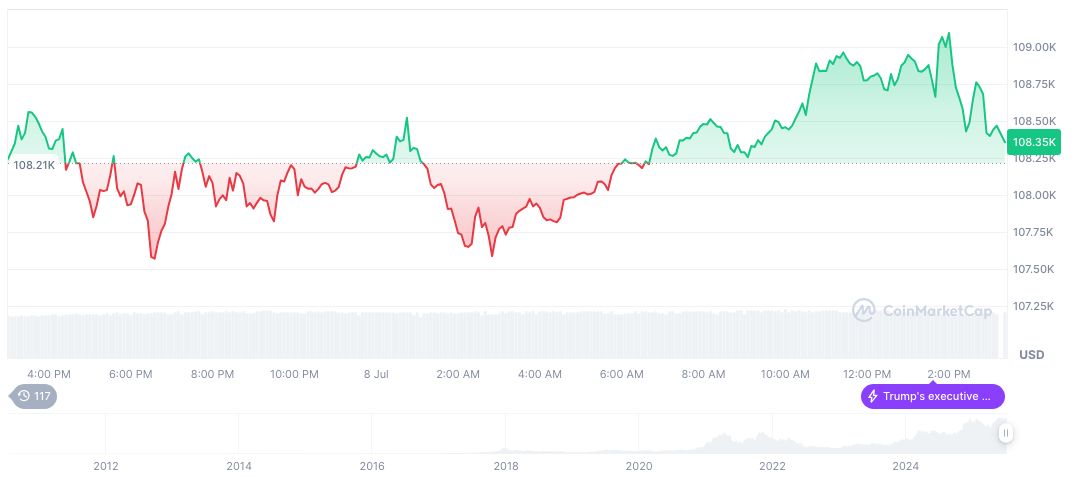- Hackers attempt phishing on Mt. Gox wallets containing $8.7 billion in Bitcoin.
- Security researchers confirmed the attack uses OP_RETURN messages.
- No immediate market movement reported, law enforcement notified.
Hackers launched a phishing attack targeting the Bitcoin wallets linked to the infamous Mt. Gox case. The attempt involves an OP_RETURN transaction directing users to a phony website impersonating the investment bank Salomon Brothers.
The attackers aimed at wallets containing approximately 79,956 Bitcoin, collectively valued at around $8.7 billion. Security analysts quickly identified the messages as phishing attempts. On-chain movements remain unchanged, although law enforcement agencies have been informed.
Phishing Attack Targets $8.7 Billion in Dormant Bitcoin
In an attempt to access dormant Bitcoin wallets, hackers executed a phishing attack using OP_RETURN messages. The messages linked to a fake Salomon Brothers website, aiming to collect personal data from wallet owners. This incident follows a similar tactic observed on July 4, when historical wallets received OP_RETURN notifications but did not lead to immediate liquidity changes.
Experts highlight that this phishing has resulted in no direct financial impact yet. It has, however, raised concerns about the security of dormant Bitcoin addresses from the Mt. Gox hack. Despite these concerns, there is no significant immediate market impact, as the targeted wallets remain untouched. Key industry figures have not issued public statements. However, BitMEX Research and other blockchain security analysts warned the community about the OP_RETURN messages, emphasizing that control of the private key is essential for ownership, regardless of external claims.
Blockchain Security Researchers, Security Analysts: “BitMEX advises against filling out the form on the website. Anyone holding coins in an address that receives one of these messages can safely prove control by moving funds to a fresh wallet. Those without the private key have nothing to gain and much to lose by responding. Law-enforcement agencies have been notified, but no jurisdiction has yet announced an investigation.”
Security Concerns Persist Amidst Dormant Wallet Targeting
Did you know? In 2014, Mt. Gox’s collapse highlighted vulnerabilities in exchange security, as hackers accessed nearly 850,000 Bitcoin, resulting in modern security protocols.
Bitcoin (BTC) currently trades at $108,859.43, with a market cap of $2.17 trillion, according to CoinMarketCap. BTC’s price has increased by 1.85% over the last 24 hours. The historical context of Bitcoin underpins its dominance, accounting for 64.12% of the market with near-term appreciation.
The Coincu research team suggests that this recent phishing could spark renewed discussions on regulatory frameworks for digital assets. Historically, security vulnerabilities have catalyzed changes in monitoring and compliance, and enhanced scrutiny might follow from this disclosure. This may be echoed in findings such as those reported by Mt. Gox moves Bitcoin $1B transferred indicating significant movement within the market.
| DISCLAIMER: The information on this website is provided as general market commentary and does not constitute investment advice. We encourage you to do your own research before investing. |
Source: https://coincu.com/347655-mt-gox-bitcoin-phishing-scam/
